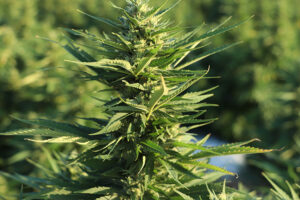U.S. Budget News: Funding Increases and Major Limitations Proposed
A few weeks ago, President Trump proposed his upcoming budget for the next fiscal year. While U.S. budgets proposed by President’s almost never become law as originally written, they often serve as starting points for ongoing budget debates.
Interestingly, this upcoming budget proposal would directly affect the CBD and marijuana industry.
When it comes to CBD, the budget proposal asked for an additional $5 million for the Food & Drug Administration to regulate CBD and related products. Specifically, the money would go towards the Office of Regulatory Affairs ($2 million), Food Safety & Applied Nutrition ($2 million), Veterinary Medicine ($500,000) and the FDA Headquarters ($500,000).
This is particularly important, as the FDA is currently stuck in regulatory limbo. It has expressed its opinion that CBD is not safe for generally accepted use and that there are concerns over potential long-term damage and liver function. As such, it has not approved any regulations on CBD besides what marketers can and cannot say when advertising the product, noting that no CBD firm can make any medical claims about CBD may be able to do. Some analysts believe that more formal regulations and inspections are currently years away.
If this funding is approved in the final U.S. budget, the hope is that it would allow the FDA to speed up its regulatory process. This is particularly important for many reasons. First: CBD is wildly popular and growing rapidly, with its user base estimated to double every year for the next three years. This means that millions of users are trying an underregulated product on a daily basis. Unfortunately, as past studies have noted, there are major problems with the current state of CBD labeling and accuracy. These regulations can provide necessary customer protections.
Those aren’t the only proposed areas of the budget that would impact the CBD or marijuana industries. $17 million has also been proposed as part of a national hemp program. The money would be used to regulate hemp farmers and approve state and local growing and processing plans.
Again, given the demand for hemp as the marijuana and CBD industries continue to accelerate, this is very important. If the U.S. government does not adequately keep pace with the consumer demand for hemp, it creates a circumstance under which consumers can be lied to and given improperly inspected products.
However, the news was most certainly not all good for cannabis and hemp as a whole. Every budget since 2014 has contained provisions that specifically banned the federal government (and specifically the Justice Department) from using its funding as a carrot – or stick – to stop state and local governments from legalizing marijuana. That rider would be removed in the upcoming Trump budget if the budget were enacted as written. Another provision would be added that banned Washington, D.C. from legalizing marijuana.
The good news is that both Presidents Obama and Trump had previously tried to remove the rider – and those attempts had failed. Given the history of these previous attempts, and the fact that the United States House of Representatives passed major marijuana expansions earlier in the year, the odds for removing this rider are low.
United Kingdom creates a pathway for legal CBD edibles
In the United Kingdom, the situation regarding CBD edibles is somewhat confusing. Food & drinks containing CBD are being sold widely, despite the fact that there technically exists no legal pathway for some CBD to be sold in that form. Technically, CBD edibles could be sold if the edibles met the standards of the Novel Food Act. That act, however, was passed in the 1990s, and approval under the act was tied directly to how the food was processed. Of course, technology has evolved, and many processing methods that were not available in the 1990s are commonly used today.
However, in many cases, that didn’t stop vendors and retailers from selling CBD food. As such, England has announced a new pathway for CBD edibles to be sold. Under new regulations, announced mid-February, the United Kingdom’s Food Standards Agency (equivalent to the FDA of the United States) has said that any CBD edible that seeks to be sold in the United Kingdom has until March 31, 2021, to apply for a safety evaluation. Included in these requirements is likely to be dosage limits. Until then, CBD edibles may be sold, provided that they are correctly labeled, safe for consumption and contain no components banned by other legislation.
This is great news for consumers, vendors and CBD manufacturers within the United Kingdom. It creates clear legal guidance under which vendors can sell CBD edibles and allows for a legal certainty that can create expansion opportunities within the market. One of the things which held CBD expansion back was the legal uncertainty surrounding the area, and this certainly still applies in particular to edibles. The legal pathway provided creates an opportunity for more businesses to be involved in this area.
This will likely have ripple effects on other areas of the United Kingdom’s economy. For example, corporate lawyers will not have to become well versed in CBD regulations, creating the opportunity for entirely new legal specialties.
This also likely increases the chances of major food and drink vendors to become more involved in this area. As a result, smaller vendors may be bumped out of the market, as they may not have the resources to compete with international food and drink chains.
It is also hopeful – and likely – that this will set the stage for future cannabis and CBD regulation in the future in the United Kingdom. The route they have chosen to take is clear, creates achievable guidelines and also gives a one year grace period in which companies can continue to sell products under the current scheme. At the same time, this grace period protects consumers from bad CBD products. While the devil is in the details, and largely depends on how the new laws and regulations are enforced, it would appear that this plan strikes the balance between protecting consumers, moving towards a better enforcement mechanism and allowing for safe products to be sold.
Hopefully, this will also create opportunities for other countries to create clear guidelines as they pertain to CBD edibles and drinks. At the moment, very few countries have any clear cut laws which regulate these areas. The United Kingdom’s leap into this area may increase the pressure for other countries to come up with a more clear and comprehensible legal and regulatory system that allows for CBD edibles to be safely sold to consumers.
FAQs About US Budget and CBD
Question: Does US promotes CBD products?
Answer: There are already people in the US government supporting CBD products. As of this writing, when it comes to CBD, the budget proposal asked for an additional $5 million for the Food & Drug Administration to regulate CBD and related products.
Question: What is the opinion of the FDA regarding CBD oil?
Answer: This may change, but as of this writing, the FDA stated that CBD is not safe for generally accepted use and that there are concerns over potential long-term damage and liver function.
Question: Is CBD legal in the United Kingdom?
Answer: Food & drinks containing CBD are being sold widely, despite the fact that there technically exists no legal pathway for some CBD to be sold in that form. Technically, CBD edibles could be sold if the edibles met the standards of the Novel Food Act
Question: Is CBD oil legal in many countries?
Answer: As of this writing, very few countries have any clear cut laws which regulate CBD oil.






